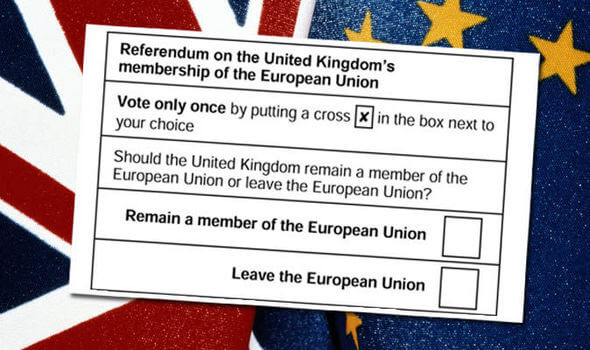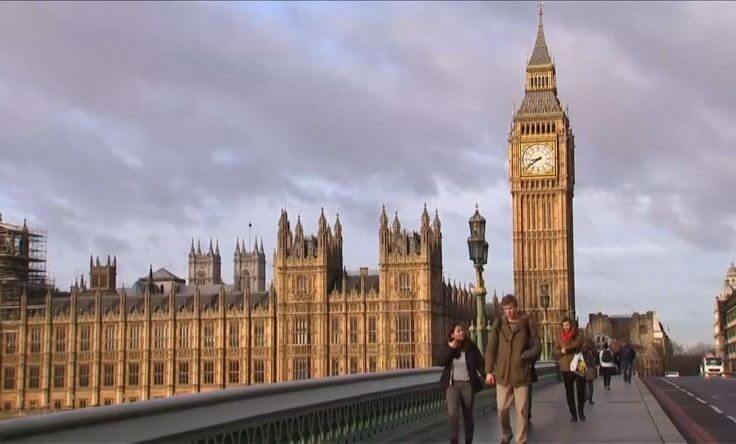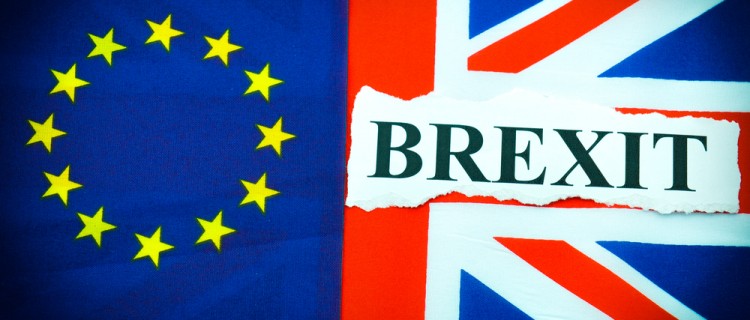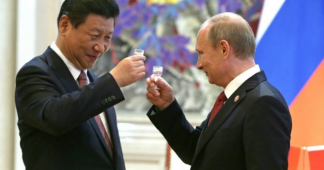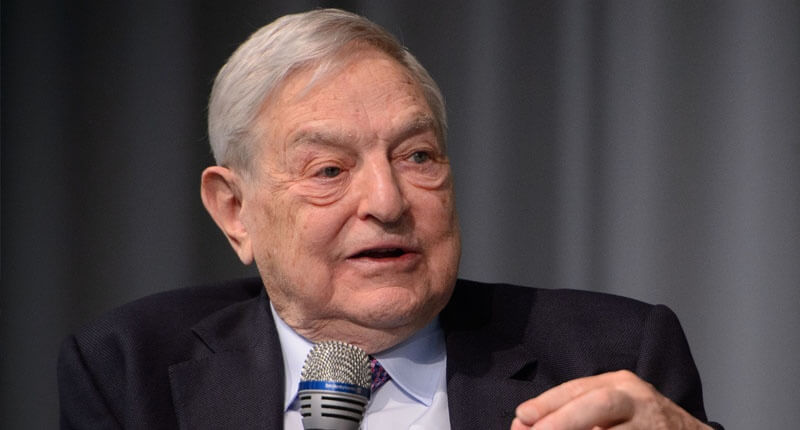By Charles Woolfson
One of Britain’s most celebrated entrepreneurs and an avid supporter of Brexit in the business community, the inventor Sir James Dyson, has argued that World Trade Organization tariffs are not a barrier to financial success or profitable trading with Europe, nor have they prevented his technology company from achieving record financial results. As Sir James put it, the tariffs were “tiny penalty to pay” compared to other taxes such as corporation tax (The Guardian, 27 March 2017). Dyson’s announcement of new investment of 2.5 billion pounds, in order to build a research and development campus in the UK has been enthusiastically welcomed by Theresa May as an example of investor confidence in the Britain’s post-Brexit prospects. Less publicized is the announcement that Dyson is also to invest in Singapore, not just in new production facilities, but in associated R&D employing high skill graduates.
Extending the global reach of Dyson products, including “bagless” vacuum cleaners and state-of-the-art hair dryers, initially came at the price of the closure of manufacturing facilities in England in the early 2000s, with the controversial loss of 800 production jobs, about half the then total UK workforce (The Telegraph, 6 February 2002). The success of Dyson’s business model has relied on low-cost assembly labour (entailing a fraction of the wage costs of UK), first in Malaysia, then the Philippines and more recently, in Singapore where the company manufactures digital motors at its Tuas facility and is currently expanding. ‘Offshoring’ initially permitted Dyson overall savings reportedly of about 30 percent on production and distribution costs (Hollinshead et al, 2002: 263). Today the company reports that sales rose 45 percent year-on-year for 2016, while underlying profits for the year rose a staggering 41 percent.
Accurate figures of the current total East Asia workforce are hard to obtain, but are estimated to be above four thousand in Malaysia and more than one thousand in Singapore (Nikkei Asian Review, 19 May 2016). The wages and working conditions that pertain in these facilities are unknown. The company, known for its secrecy, refused to participate in a detailed survey of 56 electronics manufacturers active in the region (Nimbalker et al., 2016). Dyson corporation has however reported to the UK authorities under the requirements of the UK Modern Slavery Act that there is no forced labour in its establishments and that it utilizes an ethical database, supplier training, and audits from independent third party bodies. There also exists a third party “hot line” for worker complaints (although not independent trade unions) (Dyson Slavery and Human Trafficking Statement, 2017). All would appear to be good news for East Asia, but as a model for a post-Brexit Britain, it perhaps leaves something to be desired.
The “Asian dimension” of Brexit as has been largely ignored as an explicit policy concern, excepting the assiduous courtship (and bribing?) by Prime Minister Theresa May of East Asian car manufacturing companies such as Nissan and Toyota, and electronics companies such as Hitachi, to remain in Britain. The Conservative government is seeking to reassure worried investors that Brexit will not be accompanied by the desertion of UK facilities by foreign multinationals with the loss of jobs that would entail. Japanese investment in the UK is worth more than 40 billion pounds and accounted for nearly half of Japanese direct investment intended for the EU in 2015, while creating 144,000 manufacturing jobs (MOFA, 2016). Japanese business has sought “reassurances” that the UK will remain in the European customs union and single market, and guarantees the continuing free flow of workers between the UK and the rest of the continent. As the Japanese Ministry of Foreign Affairs has put it, the UK must maintain at least “the current parameter of the immigration system” and indeed, “the inflow of skilled labour from outside of the EU needs to be liberalized” (MOFA, 2016: 12). With refreshing frankness, the Japanese government has articulated the demands of business: “With regard to unskilled workers, Japanese businesses rely on inexpensive labour from Eastern Europe in the manufacturing and agricultural industries in the UK”. The signing of a future Japan-EU Economic Partnership Agreement in 2017 has added leverage to official demands “that Japanese business and financial interests should in no way be jeopardized by the Brexit and its consequences”, while a leading spokesperson for Japanese finance capital has openly argued for a post-Brexit environment that offers “[more] flexible and privileged treatment with regard to hiring and firing employees, and on taxation than the continental EU countries” (The Guardian, 26 August 2017). Accordingly, Prime Minister May embarked on a three-day visit in the summer of 2017 to offer reassurances to Japanese business although with seemingly little effect, while government ministers have been dispatched around the world to sound out future trading prospects.
In addition to the foreign investment dimension of Brexit, there is the question of future trading agreements after Britain has left the EU. Having not negotiated independent trade deals during its forty years of EU membership, the UK is faced with something of a negotiating hurdle, in the shape of replicating the myriad existing agreements between the EU and ‘third countries’. The EU free trade agreement with South Korea entering into force in 2011 “is the most comprehensive free trade agreement ever negotiated by the EU” (Eurostat, 2015). South Korea however has possibly the largest precarious workforce of any advanced industrial society. The expedient solution of the UK government is to “cut and paste” existing EU agreements into UK equivalents, until such time as post-Brexit trade deals can be negotiated independently. This may prove problematic as the Japanese example illustrates, insofar as it may offer an opportunity to leverage even greater concessions from Britain on regulatory standards (Politico, 30 August 2017).
European Commission President Juncker’s “State of the Union” address in September 2017 to the European Parliament was intended to signal a new confidence in the European project (“the wind is in our sails”). Juncker’s agenda is for deeper European integration beyond Brexit with greater centralization of European decision-making and supervision of finance and banking, and extension of the eurozone. Trumpeting those “partners across the globe … lining up at our door to conclude trade agreements with us”, including Australia and New Zealand, countries that would be prime candidates for trading agreements with a post-Brexit Britain, Juncker has attempted to position the European Union as the global champion of free trade (Juncker, 13 September 2017). As it stands, the Commission has insisted that no UK trade deals, least of all between Britain and the EU, can be signed or even discussed until after preliminary negotiating conditions set by the Commission have been met. Presuming that point is eventually reached to the satisfaction of the Commission, the concern is that labour standards may provide a convenient bargaining counter in negotiating future trade deals for a Brexit government, a concern already expressed by critics of existing trade deals reached by the Commission (Politico, 12 September 2017).
Here the “Singapore model” may begin to assume a new reality. If wage costs can be driven down sufficiently and how far down that might be is a matter of speculation, then Britain could indeed operate as an offshore entity exploiting a competitive advantage. This is a position enthusiastically promoted by neoliberal proponents of a post-Brexit Britain under a regime of unilateral free trade, essentially guaranteeing regulatory regime competition in a “race to the bottom” (Dowd, 2017).
Fears of regulatory competition have already been expressed in European circles. Both Donald Tusk, President of the European Council, representing the combined EU heads of government, and Michel Barnier as chief negotiator for the European Commission, have separately warned that a future UK trade deal with Europe must “ensure a level playing field, in terms of competition and state aid, and must encompass safeguards against unfair competitive advantages through, inter alia, fiscal, social and environmental dumping” (The Telegraph, 31 March 2017; The Independent, 20 July 2017). UK Chancellor Philip Hammond has denied that he wants to turn the UK into a deregulated, Singapore-style economy arguing, “I often hear it said that Britain is considering participating in unfair competition in regulation and tax. That is neither our plan nor our vision for the future….”. A post-Brexit Britain, he has claimed, will maintain a “social, economic and cultural model that is recognizably European” (The Telegraph, 30 July 2017). This raises the question of what a “recognizably European” model for the UK, with its already loose labour laws and labour flexibility, could possibly entail.
The more pessimistic “Singapore scenario” for a deregulated post-Brexit Britain raises the unwelcome prospect of which entity might arrive at “the bottom” first. Will it be the UK or a neoliberal European Commission, notwithstanding the bluster over the need to avoid regulatory competition from Tusk and Barnier? The European project is reducing labour standards throughout the remaining twenty-seven member states in its post-crisis pursuit of economic renewal. French premier Emmanuel Macron’s declaration of legislative war “by decree” on trade union collective bargaining arrangements in the pursuit of easier “hire and fire” on behalf of employers, is simply the latest episode of attacks on labour orchestrated at national level, but with the encouragement of European masters, especially the German government (Bloomberg, 28 June 2017).
A Conservative post-Brexit UK government, increasingly enmeshed in bilateral but asymmetrical trade deals with countries around the globe, in pursuit of economic survival at any price, will be similarly tempted to renew and intensify attacks on labour standards and organized trade unions. Future free trade agreements, for example, that currently being floated with the US, could require that the UK loosen its environmental and safety requirements, and surrender control over the setting of key national standards to international arbitration bodies (Bloomberg, 26 July 2017). These standards, including those on labour, are vulnerable in a context of weak global governance of labour standards. This may be something that a Conservative government would happily contemplate, but not so hopefully, a future Corbyn-led Labour one. In that sense, a progressive political mobilisation against austerity that privileges the defence of labour standards at a national level in a sovereign democratic project for Britain of today becomes all the more urgent for at least on possible post-Brexit Britain of tomorrow.
References
Bloomberg. 28 June 2017. Macron Confronts the ‘Mother of All Reforms’. Gregory Viscusi. https://www.bloomberg.com/news/articles/2017-06-28/macron-confronts-the-mother-of-all-reforms (accessed 29 June 2017).
Bloomberg. 26 July 2017. U.K. Won’t Accept Chlorine-Washed Chicken in U.S. Trade Deal. Thomas Penny
and Charlotte Ryan. https://www.bloomberg.com/news/articles/2017-07-26/u-k-won-t-accept-chlorine-washed-chicken-in-u-s-trade-deal (accessed 26 July 2017).
Dowd, K. 2017. A Trade Policy for a Brexited Britain. Economists for Free Trade. IEA Discussion Paper, No. 85. August. https://iea.org.uk/wp-content/uploads/2017/08/A-Trade-Policy-for-a-Brexited-Britain-D2.pdf (accessed 28 August 2017).
Dyson. 2017. UK Modern Slavery Act Statement. Dyson Slavery and Human Trafficking Statement 2017. https://www.dyson.co.uk/community/modern-slavery-act-statement.aspx (accessed 23 July 2017).
Eurostat. 2015. South Korea-EU – trade in goods. EU-South Korea trade relations boosted by the recent free trade agreement. Statistics in focus 1/2015. http://ec.europa.eu/eurostat/statistics-explained/index.php/South_Korea-EU_-_trade_in_goods (accessed 6 September 2017).
The Guardian 27 March 2017. Dyson plays down hard Brexit concerns as company posts £2.5bn record sales. Graham Ruddick. goo.gl/waqGPM (short URL). (accessed 27 March 2017).
The Guardian. 26 August 2017. Japan to seek Brexit reassurances from Theresa May. goo.gl/4ym4zF (short URL). (accessed 28 August 2017).
Hollinshead, G., Nicholls, P. and Tailby, S. eds. 2002. Employee Relations. Harlow: Financial Times/Prentice Hall.
The Independent. 20 July 2017. Brexit: EU won’t sign trade deal if UK starts deregulation race to the bottom, Brussels warns. Jon Stone. http://www.independent.co.uk/news/uk/politics/brexit-eu-trade-deal-workers-rights-tax-haven-michel-barnier-environmental-legislation-a7851761.html (accessed 24 July 2017).
Juncker, J-C. 2017. President Jean-Claude Juncker’s State of the Union Address 2017. European Commission Press release. Brussels 13 September 2017. http://europa.eu/rapid/press-release_SPEECH-17-3165_en.htm (accessed 14 September 2017).
MOFA. (Ministry of Foreign Affairs of the Government of Japan). 2016. Japan’s Message to the United Kingdom and the European Union. http://www.mofa.go.jp/files/000185466.pdf (Accessed 17 September 2016).
Nikkei Asian Review. 19 May 2016. British vacuum-maker Dyson is cleaning up in Asia. Sam Nussey. http://asia.nikkei.com/magazine/20160519-China-Inc.-uncovered/Business/British-vacuum-maker-Dyson-is-cleaning-up-in-Asia?page=2 (accessed 21 July 2017).
Nimbalker, G. Mawson, J. and H. Wrinkle. 2016. The Truth behind the Barcode: Electronics Industry Trends. 9 February 2016. Baptist World Aid Australia. https://baptistworldaid.org.au/wp-content/uploads/2016/06/Feb16-Electronics-Report-Aus-version-FINAL.pdf. (accessed 21 July 2017).
Politico. 30 August 2017. UK wants to copy and paste EU trade deals after Brexit. Simon Marks. http://www.politico.eu/article/uk-wants-to-copy-and-paste-eu-trade-deals-after-brexit/ (accessed 9 September 2017).
Politico. 12 September 2017. Juncker’s risky bid to rescue EU trade policy. http://www.politico.eu/article/juncker-trade-sotu-risky-bid-to-rescue-eu-trade-policy/ (accessed 14 September 2017).
Telegraph, The. 6 February 2002. 800 jobs to go as ‘sad’ Dyson moves factory to Far East. http://www.telegraph.co.uk/finance/2752100/800-jobs-to-go-as-sad-Dyson-moves-factory-to-Far-East.html. (accessed 21 July 2017).
Telegraph, The. 31 March 2017. EU will ban UK from cutting tax or scrapping regulation as price of trade deal. http://www.telegraph.co.uk/news/2017/03/31/brexit-donald-tusk-article-50-eu-watch-live/ (accessed 23 July 2017).
Telegraph, The.. 30 July 2017. Philip Hammond: UK to remain ‘recognisably European’ post-Brexit. http://www.telegraph.co.uk/news/2017/07/31/philip-hammond-uk-remain-recognisably-european-post-brexit/ (accessed 30 July 2017).
* Charles Woolfson is Professor Emeritus of Labour Studies at the Institute for Research in Migration, Ethnicity and Society (REMESO), at Linköping University, Sweden. His most recent book, edited with Jeffrey Sommers, is The Contradictions of Austerity: The Socio-Economic Costs of the Neoliberal Baltic Model (Routledge, 2014). Email: charles.woolfson@liu.se
